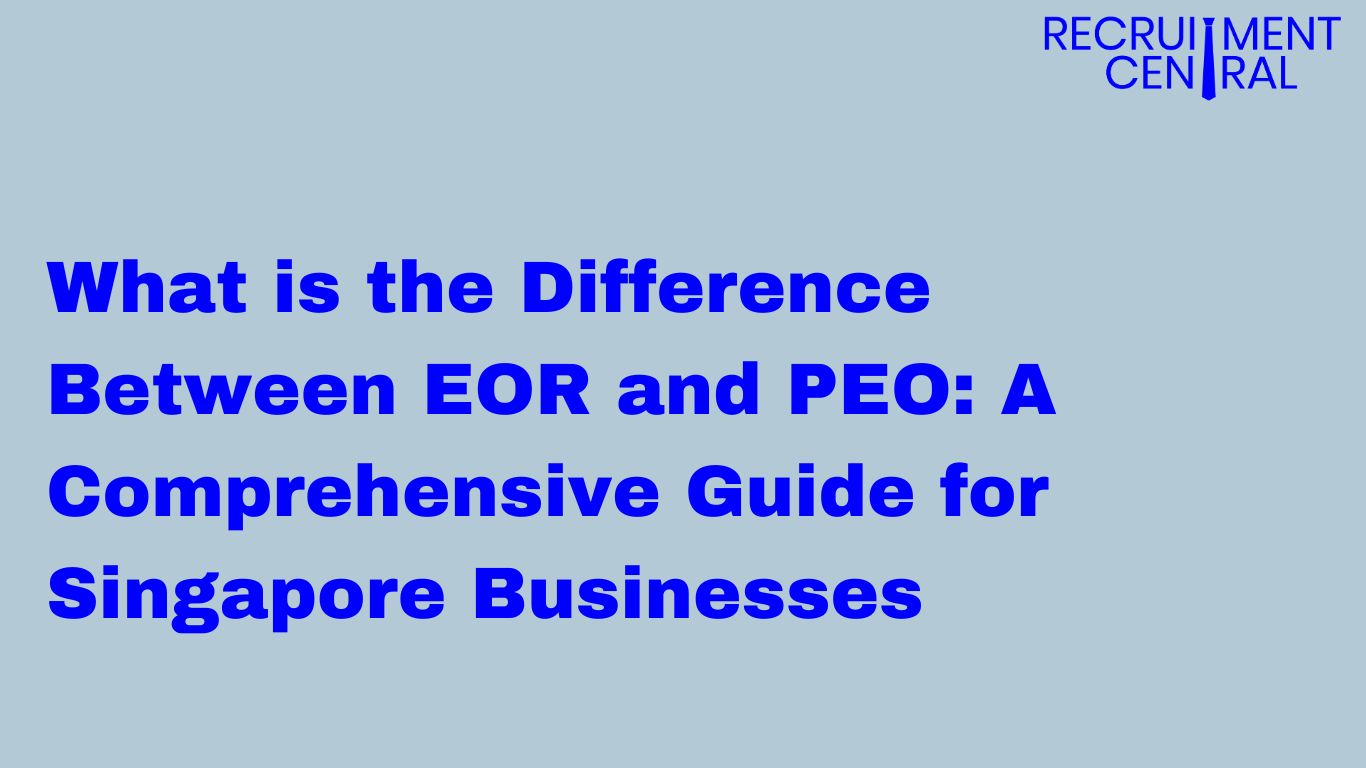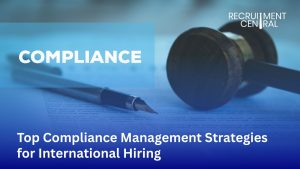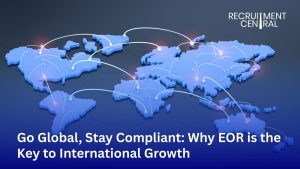For several companies, Singapore is a gateway to wider Asian operations. While mapping one such expansion, the organization makes frequent reference to two crucial terms: EOR (Employer of Record) and PEO (Professional Employer Organization). The two terms may sound similar in nature but bear different meanings when it comes to supporting a business with smooth workforce administration.
Defining the Terms: EOR and PEO – Deeper Into Conceptual Frameworks
Visualize yourself constructing your own abode in Singapore. An EOR would converse to someone who issues ownership over it but lets you reside in it and manage it; a PEO is more like an expert in housekeeping and lawn maintenance while you remain the owner. Let’s dig further into these variations.
EOR vs PEO: A comparison
Employer of Record (EOR)
Under the law, this company will serve as the legal employer of all your workers in Singapore. It includes full employer responsibilities for:
- Transfer and Execute Salaries
- Tax Returns and Compliance
- Work Permit Applications and Renewals
- HR Administration
- Management of Employment Contracts
- Administration of Insurance and Benefits
Find out more about Employment Laws in Singapore
Professional Employer Organization (PEO)
Under the PEO model, your company will maintain a direct relationship with the employees.
- There are specific HR functions and payroll taken on by the PEO.
- Greater control over employee management
- The PEO assumes shared employer responsibility with your organization.
Also Read : Average Salary in Singapore 2025
EOR vs PEO: Key Differences That Matter for Singapore Businesses
1. Obligations on Rights
- EOR: Takes in full legal responsibility as the employer
- PEO: A sharing of legal responsibilities with your company
2. Prerequisites for Entity
- EOR: Does not require local entity setup
- PEO: Requires your company to have a legal entity in Singapore
3. Level of Control
- EOR: Limited direct control over employees
- PEO: Quite a bit more control over workforce management
4. Structure of Fee
- EOR: Higher fee but usually comes with many services included
- PEO: Generally a more affordable option and tend to charge by individual service

EOR vs PEO: When to Choose Each Option
Choose an Employer of Record (EOR) when:
- You are testing out the Singapore market before fully committing
- You need to hire quickly and do not wish to establish a legal entity
- You want to minimize legal and compliance risks
- You are hiring a small team (1-10 employees)
- You want to take a hands-off approach to employment administration
Choose a Professional Employer Organization (PEO) when:
- You already have a legal entity in Singapore
- You wish to keep direct control over the employees
- You want some HR support while retaining employer status
- You have a larger team (10+ employees)
- You want the flexibility to choose the services you want support on.
Also Read : Finding Singapore Jobs for Foreigners: A Step-by-Step Guide
Real-World Impact
Take the real-world case of TechStart, a US software company with recent expansion into Singapore. The company’s very first three employees were obtained through an EOR, which enabled them to test the market while committing to entity establishment. After a successful period of 18 months, they established their own entity and transferred employees to PEO service; the company retained most of the reins while benefiting from key support in HR.
Making the Right Choice
For ease of human resources operations and compliance with local labor legislation, consider partnering with a trusted EOR provider such as Recruitment Central. They can help with the following:
- Hiring and onboarding: Quick recruitment and onboarding of employees in Singapore.
- Payroll and benefits: payroll, taxes, and benefits management for your employees.
- Compliance: staying compliant with local labor laws and regulations.
- Risk management: reduce employment risk.
Keep in mind, sometimes the success of your expansion rests with one option or the other. Take time to evaluate your needs, speak with the professionals, and choose the one that fits your business strategy best.







